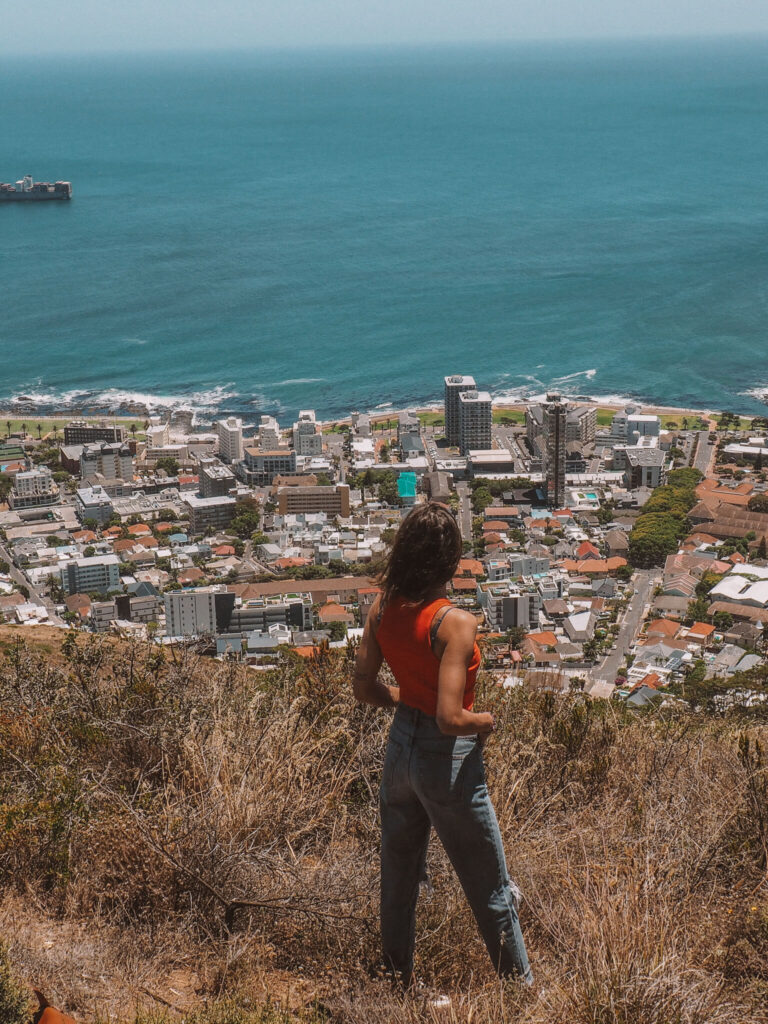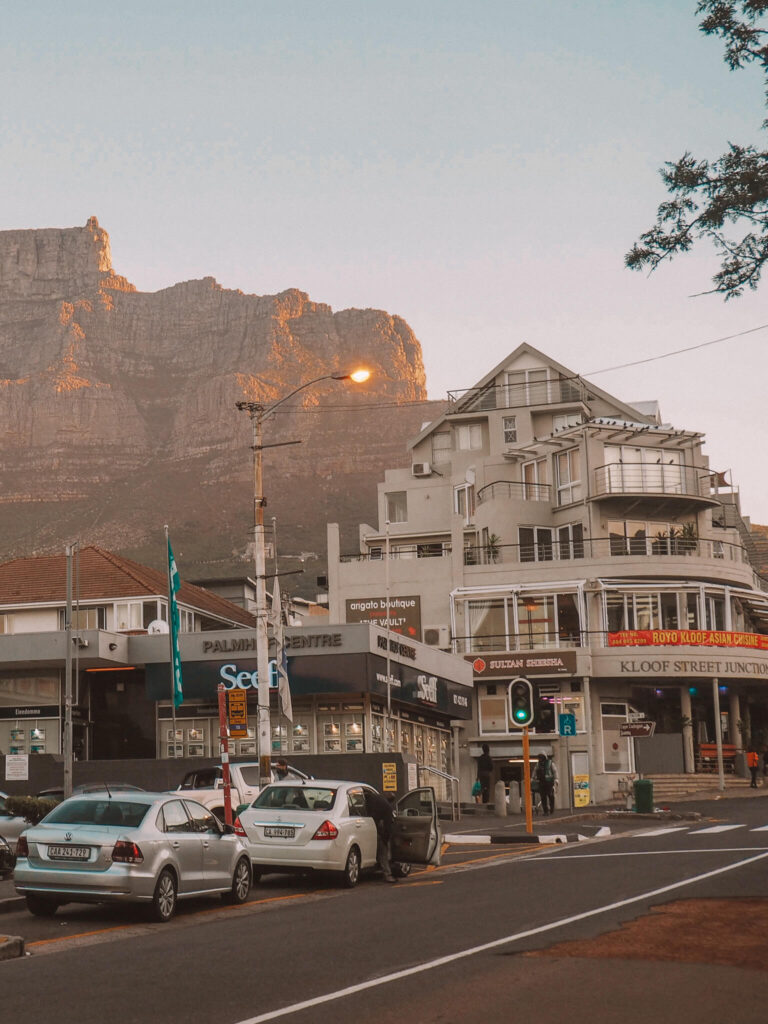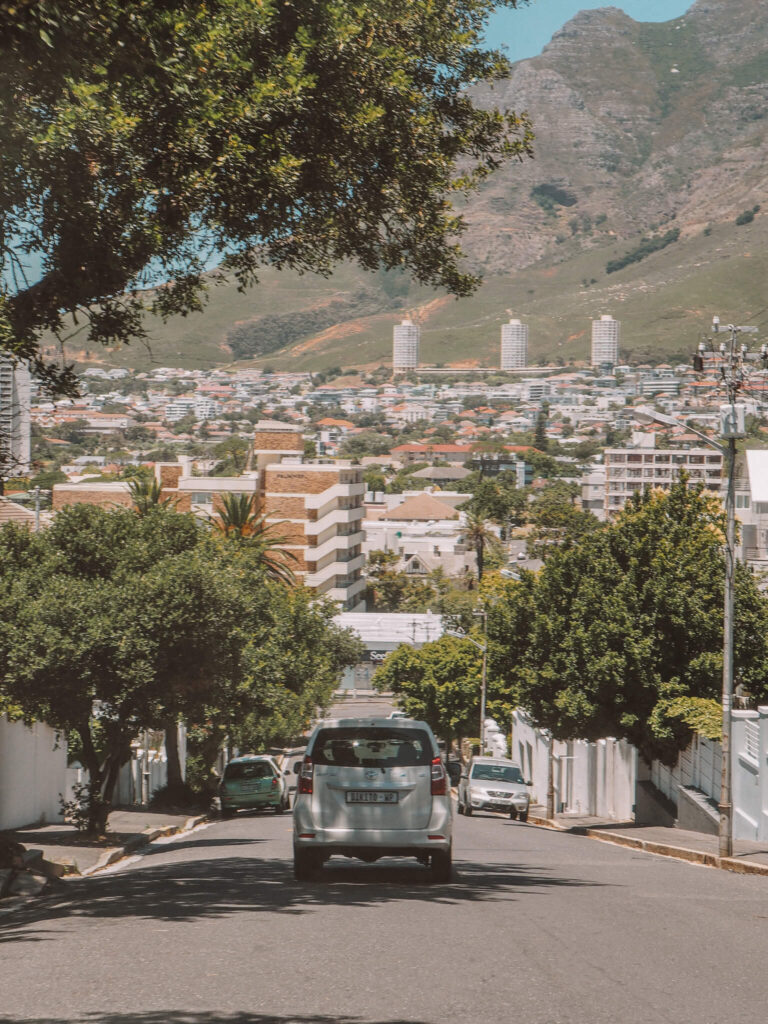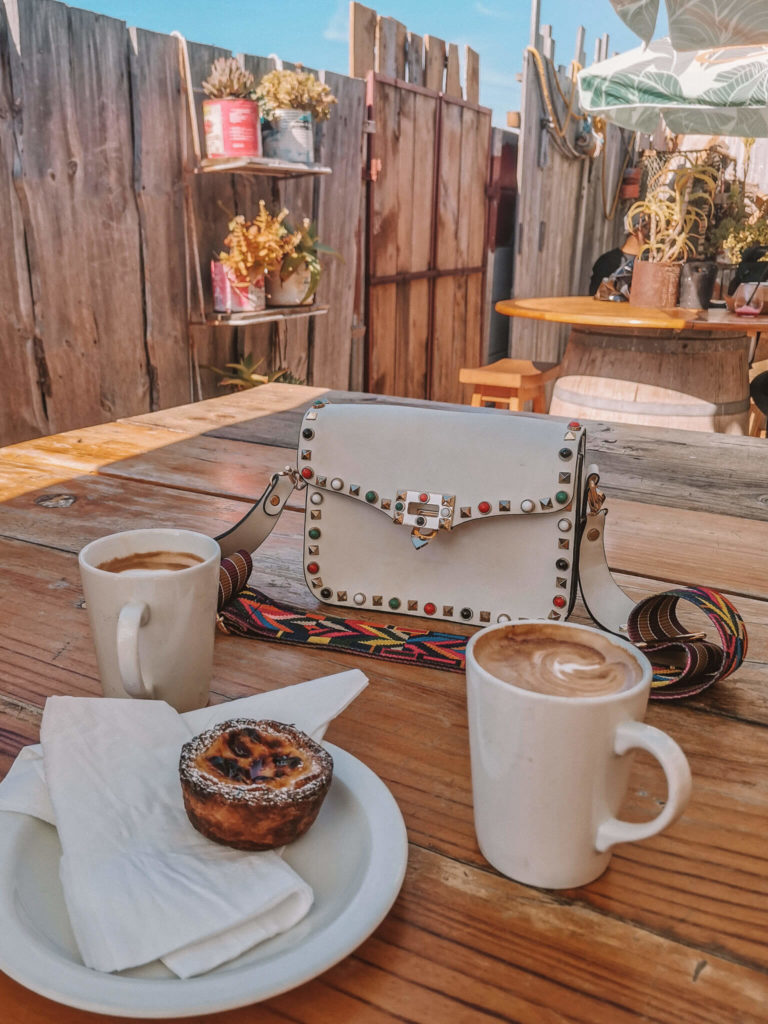How exciting: you've decided to take a trip to Cape Town! Gorgeous sunsets, great hiking routes, white sandy beaches, world-class wines - no matter what you're looking forward to most, you're sure to love it in South Africa's Western Cape!
I lived in Cape Town for almost two years and know what precautions you should take for your trip and what you should look out for. Let's go! In this article you will find all the information you need to plan your trip to Cape Town!
Cape Town and the Western Cape
Welcome to the Western Cape
A little geography to start with: Cape Town is located in the Western Cape, one of the 9 provinces of South Africa, and is also its capital. Don't be fooled by the size of the Western Cape on the map: It's bigger than Austria and Switzerland put together. It stretches around 400 kilometres north along the Atlantic coast and around 500 kilometres east along the South African south coast and the Indian Ocean.
The Western Cape is incredibly diverse and there is much more to discover than just Cape Town: wine-growing areas, desert, bushland, mountains and long coastlines. But more on that later!
Cape Town - the "Mother City
The capital of the Western Cape is sometimes called the "Mother City" - two thirds of the province's population, around 4.6 million people, live in the capital region in the City Bowl at the foot of Table Mountain, the Atlantic Seaboard with its luxury residences and the Cape Flats.
Cape Town is not only the seat of the South African parliament, but together with Bloemfontein and Pretoria one of the country's three capital cities. The old part of Cape Town, the City Bowl, is framed by the 1,000 metre high Table Mountain, Devil's Peak and Lion's Head on three sides. This guarantees dramatic views from every corner, especially when the Table Cloth, a blanket of clouds, covers Table Mountain!
What language is spoken in Cape Town?


Weather
Climate zones
The Western Cape is diverse in many ways and the climate is also very varied. The majority of the province has a Mediterranean climate, meaning cool and humid winters and warm, dry summers. Cape Town, which is roughly at the same longitude as Sydney or Los Angeles, also has a Mediterranean climate. So it rarely gets really hot in the Mother City. In the desert areas of the Karoo, winters are frosty and cold, while summers are very hot and thundery. Along the Garden Route, the climate ranges from maritime to tropical, with cool, wet winters and warm, humid summers.
Temperatures
Four seasons in one day? It can happen in Cape Town! In summer (from November to March) there are Temperatures between 16 °C and 26 °C. It rarely gets really scorching hot - although the heat can sometimes build up between the tower blocks of the City Bowl. Forest fires also occur more frequently in summer, the vegetation is very dry as it hardly ever rains.
In winter, from the beginning of June to the end of August/beginning of September, cold fronts move in from the Atlantic and it can rain for days on end, accompanied by icy winds! In the winter months, the average temperature is between 18 °C and 8.5 °C. This feels even colder, especially in the houses: Because you won't find central heating in buildings in Cape Town. If you are lucky, however, you can experience sunny and warm days with temperatures above 20 °C from August onwards.
What is the best time to travel to Cape Town? Of course you're thinking: it must be summer! In spring and summer, however, you have to reckon with the "Cape Doctor", a strong south-easterly wind that can make sunbathing on the beach quite unpleasant and often means you have to bring a thin jacket even on the warmest days. From February onwards, the wind slowly dies down and the crowds of tourists have also left, making it quieter in the Mother City. For me, this is the perfect time for a holiday in Cape Town.
Water temperatures in Cape Town & the Western Cape
Swimming in Cape Town is not for the faint-hearted. And not because of the great white sharks that like to hang out in the area. The average annual temperature of the Atlantic Ocean in Cape Town is between cold 13 °C and 17 °C. In the South African summer, the temperatures are even lower than in winter. In general, you will find slightly higher temperatures in False Bay, i.e. near Muizenberg, than in Blouberg.
Along the Garden Route, the water of the Indian Ocean is somewhat warmer, between 16 °C in August and 21 °C in February.

Tap water
Tap water in South Africa is generally suitable for drinking and cooking if it comes from taps in urban areas. In rural areas, tap water is not necessarily safe for consumption and should be boiled and/or filtered to be on the safe side.
Electricity & load shedding
Loadsheddinga word that you will only hear South Africans say with a heavy sigh. This is a method of reducing electricity demand by switching off the power supply in certain areas for a certain period of time. In short: controlled power cuts. Unfortunately, this usually happens at the times when you need electricity the most: in the morning and in the evening.
And it is really impractical if you work remotely or from home. You can find some great co-working spaces herewhich normally have generators. This means that you can also work from there during loadshedding. Most hotels also have generators and in the City Bowl, around the business district, there are usually no power cuts. However, shops and restaurants may be closed during this period if they do not have a generator.
I therefore recommend that you use the Eskom Loadshedding App to install. This allows you to plan your day accordingly and avoid areas with loadshedding.
Mobile Internet
You can buy a prepaid data SIM card directly at the airport. All you need is your passport and an address (your hotel will do). Vodacom and MTN generally have the best network coverage.


Clothes - what should you (not) wear?
Wear branded clothing in Cape Town?
You've probably come across a few articles telling you not to wear jewellery and branded clothing. That's not quite true. You can certainly dress up and you don't have to arrive in the clothes you actually wanted to get rid of. But especially if you have expensive jewellery or camera equipment with you, you should stick to a few basic safety rules: Don't walk around a lot (and especially not alone), take an Uber to your destination, rather enter a shop if you feel uncomfortable and have the feeling that someone is following you.
In South Africa there is no dress code - Everyone wears what they like and what they feel comfortable in. This means that you too can simply bring the clothes that you like best and feel most comfortable in. A pretty liberating feeling, actually. A few things should still be on your packing list.
What should you definitely pack?
We've already talked about the Cape Doctor, which means you'll need a light jacket even in summer, as Cape Town is particularly cool in the evenings. Along the Garden Route, the climate is warmer and more tropical. So if you're travelling there, light clothing is the best choice - linen, cotton, no tight-fitting items that will make you sweat even more.
Many hikes, such as the Lion's Head or the Pipe Track, can also be completed in trainers. Hiking or trail running shoes are still more suitable, as they have a good tread that gives you better grip on the gravel paths. Cape Union Mart in Cape Town is a good and cheaper address if you still need equipment during your stay.
The South African sun is also much stronger than we are used to in Europe. Good sunglasses and a hat are therefore recommended - because sunburn on the scalp is a real danger. not fun, I can tell you from experience.

Nature & conservation
We all travel to South Africa to enjoy the unique nature, the animals, the hikes, the endemic flora and fauna, right? South Africans are also very proud of their nature, there are 19 national parks in total, the Kruger National Park, the oldest in the country, was even created back in 1898.
The Western Cape itself is also home to the Cape Floral Kingdom, one of the world's seven floral kingdoms and a UNESCO World Heritage Site since 2004. One fifth of all plant species on the continent are found here on just 0.5 per cent of Africa's surface area, many of which are endemic to the region - in other words, they only grow here and nowhere else in the world. The fynbos vegetation of the Cape Floral Kingdom is particularly famous for its unique reproduction, which takes place not only through birds and seeds but also through bush fires.
When you are out and about in nature, on the hiking trails of the Western Cape, please remember how special the flora and fauna of the region is and that the fragile landscapes can take decades to recover once they have been destroyed.
This means: If hiking trails have been closed, stick to them and don't set off anyway just because you saw a photo on Instagram of someone who didn't adhere to the guidelines of the SAN parks (an example: Wallis Cave in Cape Town). In general, you should always stay on marked hiking trails.
Don't just pick flowers or step on them, even if someone has done it before you, and be careful not to throw away cigarette butts, glass objects or anything else that can start fires. In short: leave places without traces and as clean or cleaner than you found them.

Safety in Cape Town
The topic that is of burning interest to every holidaymaker: How safe is Cape Town?
To start with: in two years in Cape Town, I never really felt unsafe or threatened. A little uneasy, yes, but not really unsafe. Cape Town and the Western Cape in general are among the country's tourist hotspots and a lot is done to guarantee the safety of visitors.
However, safety is an issue that you will have to deal with if you are planning on travelling to South Africa, to be honest. After all, not only does South Africa have a high rate of violent crime, but Cape Town is also the city with one of the highest murder rates in the world - and has been for years.
But please don't let that put you off!
Yes, there is of course always a residual risk wherever you travel in the world, but: most of these crimes happen not in the areas visited by tourists and if you stick to a few basic safety rules, you will have a wonderful trip.
Walking & visiting sights
First things first: you can go for a walk in Cape Town without being mugged. You can stroll along the promenade in Sea Point, the V&A Waterfront or the promenade in Camps Bay without any danger. Bree Street and Kloof Street are also streets where you can simply walk along for a few blocks during the day without any problems. However, be aware of your surroundings: don't walk around with a mobile phone in one hand, a to-go coffee in the other and headphones in your ears. If you have the feeling that someone is following you or bothering you, go into a shop or restaurant instead.
Areas I wouldn't walk around in are generally Woodstock, the Central Business District (especially after 5pm), or generally quiet side streets - even in safe neighbourhoods like Sea Point.
Hiking in Cape Town
A few words about homeless people in Cape Town
Treat the homeless people you meet firmly, but with kindness. They also deserve to be treated with dignity. You are so privileged as a guest here in South Africa: You can travel to this beautiful country, afford a nice hotel here, go out for dinner, create great memories for yourself.
If you have some food to spare, a homeless person will certainly be happy to receive it. If you have nothing, turn them away politely but firmly. Instead of giving every person you meet a few rands, which in case of doubt will not be used as you hope, you can also support charitable projects such as the Secret Love Project support.


Driving in Cape Town
Driving in Cape Town
South Africa has left-hand traffic. But don't worry: you get used to it quicker than I thought. It was only the windscreen wipers and indicators that I sometimes still confused even months later. At junctions: Whoever arrives first, continues first. Right before left does not apply here!
Be careful when driving on the motorway: Animals and even people can cross it at any time. And: there are sometimes traffic lights in the middle of the motorway. So always pay attention here.
If you want to go out at night, I recommend taking an Uber instead of driving yourself. If you go by car, make sure you park in a guarded car park and don't leave any valuables in the car. There are car park attendants everywhere who you pay ZAR 5-10 for their services - but don't give them any money in advance. Parking attendants are no guarantee that your car is safe, most of them are not employed. However, they can provide a little extra security.
Fuelling & petrol stations


All about money
Currency & Cash
As the South African rand is very volatile, I would recommend that you do not exchange cash in Germany before your trip. I would recommend withdrawing cash from an ATM once or twice during your trip. Please choose ATMs in a shopping centre, these are safer and make sure that no one is standing close behind you. However, you generally won't need much cash in South Africa, even street vendors often accept card payments!
Tipping
People in South Africa, especially those in service professions, rely on tips to earn enough to live on each month. This means that tipping is a must. 10 per cent is the absolute minimum. For good service, you can tip 15 per cent or even 20 per cent.
When visiting Cape Town and South Africa: Keep an open mind, be willing to learn and remember that South Africa relies on tourism - but that doesn't mean you can be condescending to anyone who helps make your holiday memorable.
Looking for more insider tips for planning your trip to Cape Town?
For restaurant recommendations, hikes, the most beautiful sunset spots and real insider tips, Take a look at my interactive travel guide or click directly to my 14-day Cape Town round trip, complete with hotel and restaurant recommendations and insider tips.